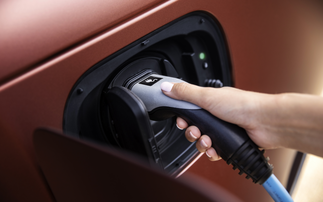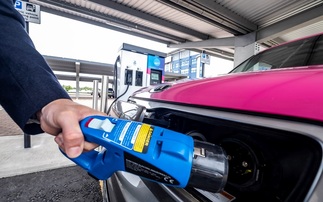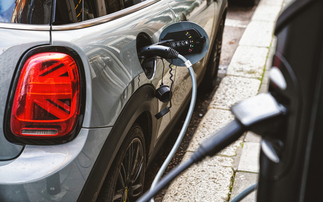UK one of 13 countries to sign up to the Zero Emission Vehicle Alliance
The end of the road for the internal combustion engine moved a step closer today in Paris, as a group of 13 national and regional governments signed up to a major new initiative to ensure all new cars, vans and buses are fully zero emission by the middle of this century.
The Zero Emission Vehicle (ZEV) Alliance was officially launched on the sidelines of the COP21 summit, with the UK, Germany, Holland and Norway confirmed as founder members. They were joined by the regional governments of California, Connecticut, Maryland, Massachusetts, New York, Oregon, Rhode Island, Vermont, and Quebec in supporting the new initiative.
The alliance will see the various government commit to sharing best practices and guidance on how to enable the universal rollout of zero emission technologies. The partnership also sees the participants set a goal of making all passenger vehicle sales zero emission vehicles by 2050.
The UK's involvement underscores its previous commitment to decarbonising road transport by 2050.
Transport Minister Andrew Jones said the new group would help the UK build on its positions as one of the world's leading markets for zero emission vehicles, such as electric cars and fuel cell powered buses and trucks.
"The UK already has the largest market for ultra-low emission vehicles in the EU, and the fourth largest in the world and today's pledge reaffirms our commitment to ensuring almost every car and van is a zero emission vehicle by 2050," he said. "Electric cars are cheaper and greener to run and we are making them more affordable, spending more than £600m between 2015 and 2020 to support the uptake and manufacturing of ultra-low emission vehicles here in the UK.
"By leading international efforts on this issue, we are playing our part in helping achieve greenhouse gas emission reductions of more than one billion tonnes per year across the world by 2050."
The announcement was welcomed by Philippa Oldham, head of transport and manufacturing at the Institution of Mechanical Engineers, but she warned the government needed to step up efforts to support zero emission technologies if the long term target is to be met.
"The government has set an ambitious and admiral target, but it is easy for long-term targets to be set by politicians who won't be in office by 2050," she said. "It is imperative that this is followed by a clear and enforceable roadmap on how it is going to be achieved. Not only do we need greater Research & Development spending to drive down the cost of low carbon vehicles, and improve their performance. It is critical that we look at the infrastructure supporting these vehicles as those that use electricity will need to have zero carbon electricity to charge them up to be truly carbon neutral."
This article is part of BusinessGreen's Road to Paris hub, hosted in association with PwC.







